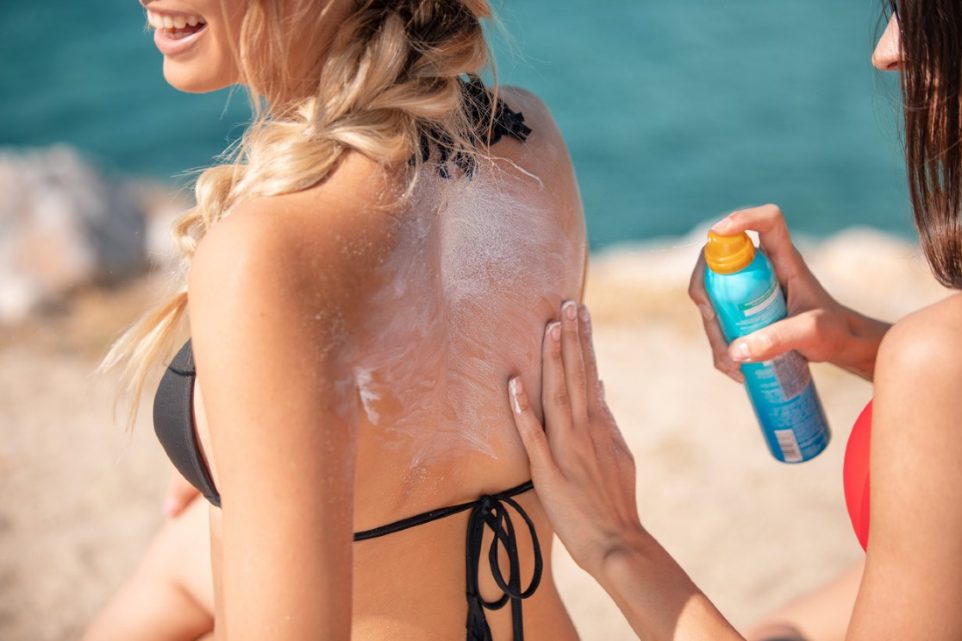Debunking the Myth: Does Sunscreen Block Vitamin D?

A common concern I hear about is whether sunscreen impedes our body’s ability to produce Vitamin D—a crucial element for bone health, immune function, and overall well-being. Today, let’s explore and debunk the myth surrounding sunscreen and Vitamin D production, providing a clear, well-rounded understanding based on scientific insights and expert advice.
What Is Vitamin D and Why Is It Important?
Vitamin D, often dubbed the “sunshine vitamin,” is unique because it’s one of the few vitamins our bodies can produce on their own through exposure to sunlight. Specifically, when our skin is exposed to UVB rays from the sun, it synthesizes Vitamin D from cholesterol. This process is crucial because Vitamin D plays a pivotal role in calcium absorption, essential for maintaining strong bones and teeth. Moreover, it supports immune function and has anti-inflammatory properties.
How Do We Get Vitamin D?
There are three primary ways to get Vitamin D: through skin exposure to sunlight, from dietary sources, and via supplements. Foods rich in Vitamin D include fatty fish like salmon and mackerel, fortified foods, cheese, and egg yolks. However, dietary sources alone often do not provide sufficient Vitamin D, making sunlight exposure important for many people.
The Sunscreen and Vitamin D Debate
The critical function of sunscreen is to protect the skin from harmful UV rays, which are a major cause of skin cancer. Sunscreens work by either absorbing or reflecting UV rays to prevent them from reaching the skin. The concern is whether this blockage affects Vitamin D synthesis. The truth is, while sunscreen does reduce the production of Vitamin D due to its UV-blocking properties, the effect might not be as significant as one might fear.
What Does the Research Say?
Studies have shown that while sunscreen can decrease Vitamin D synthesis if used perfectly, in reality, people do not apply enough sunscreen, cover all exposed areas, or reapply as frequently as necessary. This imperfect application allows for sufficient UVB penetration to produce Vitamin D. According to dermatologists, regular use of sunscreen has not been shown to lead to Vitamin D deficiency in most people. Even with rigorous application, some UV rays still reach your skin, which should be enough to produce adequate Vitamin D.
Balancing Sun Protection and Vitamin D
It’s essential to find a balance between protecting your skin from UV rays and getting enough Vitamin D. Here are some tips to achieve that balance:
- Use Sunscreen Properly: Apply a broad-spectrum sunscreen with at least SPF 30. Remember to reapply every two hours, or more often if swimming or sweating.
- Seek Shade and Wear Protective Clothing: When the sun is at its strongest (between 10 AM and 4 PM), use hats, sunglasses, and long-sleeved shirts to protect your skin.
- Get Vitamin D from Your Diet: Increase your intake of Vitamin D-rich foods and consider supplements if your dietary intake is insufficient or if you have limited sun exposure.
- Monitor Your Vitamin D Levels: If you’re concerned about your Vitamin D levels, a simple blood test can provide accurate information. Discuss with your healthcare provider whether you need to take a supplement.
The Bottom Line
Sunscreen remains a crucial element in protecting against the harmful effects of UV radiation, including skin cancers and premature aging. While it does reduce Vitamin D synthesis to some extent, this reduction is generally not sufficient to cause deficiency or affect overall health negatively. The key is to use sunscreen correctly and ensure you’re also getting Vitamin D through diet or supplements, especially in the winter months or if you have limited exposure to sunlight.
Your Adventure, Our Experience
At TheCampingList, our dedication to authenticity and reliability stems from our own adventures in the great outdoors. Our team, comprised of seasoned experts in hiking, camping, climbing, cycling, fishing, and hunting, rigorously tests every product and shares insights drawn from real experiences. This hands-on approach ensures our reviews and guides meet the highest standards of durability, functionality, and comfort. Moreover, our platform thrives on the rich contributions and feedback from our vibrant community of enthusiasts. We pride ourselves on delivering unbiased, educational content that empowers and informs your outdoor pursuits. Trust in TheCampingList for genuine advice and support, where we're all about enriching your journey, every step of the way.